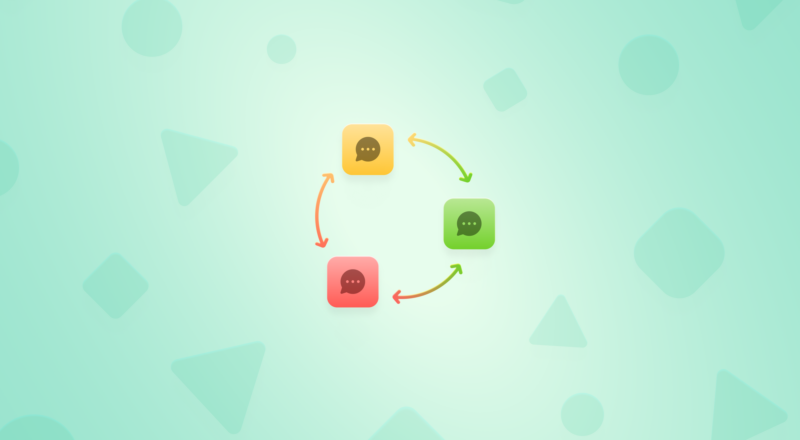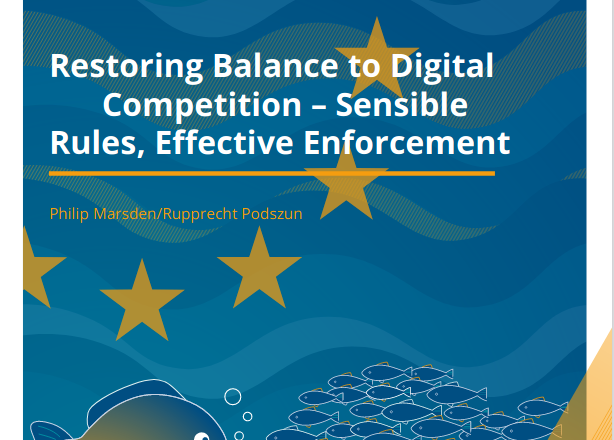This post was originally published on the Element blog
The EU’s next discussion on the Digital Markets Act (DMA) will take place soon and interoperability for online communications (messaging apps, collaboration tools and social media platforms) will be at the heart of it.
Interoperability was one of the key features of the DMA when it was first advertised, as it’s completely aligned with the fundamental goals of the act. Interop removes the grip gatekeepers have on digital markets and gives an opportunity to smaller players to flourish – whilst giving more control to the users over their communications.
However the different parties (the European Commission, Parliament and Council) are having a hard time reaching an agreement over it, to the point the clause may be completely dropped.
Interoperability means that users will no longer be locked into particular ecosystems. For instance, you’ll no longer have to use WhatsApp in order to chat with someone else who uses WhatsApp. No more silos. No more being locked into a product or ecosystem. People will be free to easily chop and change between different apps, without the cost of existing friends dropping out of their contacts.
The concept isn’t too different from interoperability between banks, or interoperability between phone networks. Encouraging consumers to shop around creates a more innovative and competitive marketplace, driving up standards and customer service. It’s a good thing.
How Big Tech will dupe the EU
Unless you’re a Big Tech incumbent; in which case helping people to shop around more easily threatens your huge profits and monopoly position. Indeed it’s such a crimp in your plans that you’ll fight tooth and nail to preserve the status quo.
So with Big Tech fighting any level of change, regulators will opt for the easiest solution possible. They will say: “Look, all you need to do is open your respective APIs to enable others to interoperate – then we’re done!”
And they are right to a degree; every app has APIs, that’s how they work, and several (like Twitter, Facebook, Slack, Telegram…) have already made them public. Although currently, the terms of use of these public APIs tend to be incredibly restrictive (paid, rate-limited, or literally anticompetitive: “you cannot use this API if you compete with us”) or can be turned off at any time (as Twitter famously did).
However from an EU perspective, it could be pretty easy to stipulate that the gatekeepers must open APIs and also prevent Big Tech from limiting how those APIs can be used by others.
From Big Tech’s perspective, that’s a win. It allows them to easily tick the compliance box, while kicking the can L-O-N-G down the road. As Apple is currently demonstrating in the Netherlands, they can play the political game forever – they have the marketplace, the cash and the resources. Big Tech has hordes of lawyers and the like. Hell, Facebook has even hired an ex-prime minister (well, a deputy one at least) to lobby for them.
They can drag their feet on opening an API. Release it without fanfare or enthusiasm, and make sure it’s not particularly good; a bit of a pig. Clunky. Unreliable. “This stuff is tricky, you know?” And just when people are finally getting to grips with it… they can update it! To make it worse. Or just different. Different enough to put a bunch of smaller companies through a whole lot more development cost.
And of course when all the Big Tech players do that across all their products, it becomes very expensive indeed for some start up to continue to compete. And Big Tech will say: “Well, we tried. We created the open APIs. But consumers chose to stay with us.”
Not only do open APIs favour the incumbents, they also present a fresh challenge. If you bridge to any end-to-end encrypted app (e.g. WhatsApp) you will have to decrypt the communication at the bridge level to either pass it to an unencrypted app (e.g. Slack or Telegram) or re-encrypt it to send it to another encrypted app like Signal.
How the EU can ensure genuine interoperability
The real solution is not open APIs, but open standards.
It’s an open standard that levels the playing field, not asking the big players if they don’t mind sharing the ball please.
An open standard means that anyone and everyone can invest in development – driving innovation, raising standards, creating jobs – safe in the knowledge that the ground won’t move from under them. Knowing that Big Tech can’t simply whip away the API rug.
An open standard also means that end-to-end encryption can be preserved, protecting users and their privacy.
The web flourished because it was based on an open standard; something that was free both literally and in spirit.
The power of the early days of the web can be rekindled by an open standard for online communications. Element is built on just such a standard – Matrix, which has a thriving ecosystem, and puts forward its own interoperability argument. Other open standards exist, and there are more to come.
The EU’s DMA could bring fundamental change and improvement to online communications, and challenge a business model that sees centralised tech giants profit by harvesting users’ data. Or it could fail.
The DMA is a noble piece of legislation, and mandating open APIs would be a good first step. But to be a successful piece of legislation, it must eventually choose open standard based interoperability.
Combating Big Tech’s Fear, Uncertainty and Doubt
Big Tech doesn’t want an open standard. The gatekeepers will raise objections in an effort to create fear, uncertainty and doubt so let’s answer that FUD in advance…
Does an open standard slow down innovation and development?
No, not everyone has to provide the same features. The standard only defines the common language so that the basic act of sending information from one app to another can be achieved. Then any service can create its own specialities on top, ensuring innovation and competition.
Is it complicated to make an existing service compatible with a standard?
No, it only took Gitter a month to speak Matrix when it joined the network. And the person leading that project was from Gitter, not a Matrix developer.
Is an open standard incompatible with security?
An open standard is far more secure than open APIs and today’s siloed apps. An open standard can ensure end-to-end encryption (and much more) between competing apps – and be audited independently for the benefit of all. And of course an open standard is far more transparent.
Contrast that to the current world of siloed apps. A service such as WhatsApp or Signal puts all its users in one place. Those users are at the mercy of the service; it owns and manages everything and can be as opaque as it wants.
Is an open standard incompatible with data privacy?
Quite the opposite. Regulations like the Digital Markets Act do not exist by themselves. Data privacy is already regulated by GDPR, and soon the Data Act. Data can be shared on a need to know basis with other providers, users can have their say and clarity on what is being shared, with who and why. And of course end-to-end encryption protects users too.
How can we even moderate interoperable social media?
Big Tech has failed very badly, and unleashed many serious consequences as a result.
No individual, team or company can make choices on behalf of the world at large. A company simply cannot unilaterally dictate what is ‘good’ or ‘bad.’
The entire approach to moderation requires a mind shift because a top-down approach of armies of moderators staring at bad stuff is not a sustainable solution.
What’s required is tooling to empower all admins, moderators and users in the network to manage their communication. Email failed spectacularly at this, and rather than say “it’s impossible, look at email” our take is “email failed, how can we learn from it?”. This is why Element has a Trust and Safety team that builds all the tools service providers need to keep their users safe in a decentralised and secure open network, and uses them extensively.
The key is to give admins and users the ability to filter content and people based on their reputability and one’s interests. We believe a collaborative approach to moderation allows communities of people to draw on the experience and knowledge of those they trust (much as in real life), from blocking illegal and unpleasant content to simply ignoring things they aren’t interested in.
Amandine Le Pape is COO at Element.



